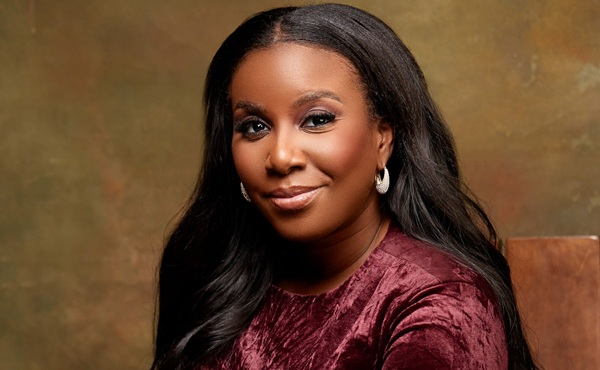How AI Can Help Leaders Deal With Ever-Increasing Volatility
President Donald Trump holds up a chart while speaking during a “Make America Wealthy Again” trade ... More announcement event in the Rose Garden at the White House last month. (Photo by Chip Somodevilla/Getty Images)
Getty ImagesFor some time now, leaders of organizations have been warned that they live in uncertain times and so need to be able to cope with volatility and complexity. Indeed, they are repeatedly told that in order to thrive they need to embrace such challenges. But it is one thing to deal with events and situations that — although they may be unpredictable and unique — are within the bounds of what might be if not exactly expected then not completely unforeseeable and quite another to handle things that can change from day to day and back again.
Since the recent flurry of announcements from the Trump White House on tariffs and trade deals falls squarely into this category, leaders need to adopt fundamentally different mindsets than the ones that have served them until now. Sure, the pandemic accelerated a profound change in the way that many organizations work, while the invasion of Ukraine by Russia has forced a shift in European attitudes towards defence and security. But a world in which tariffs can be imposed on a company’s goods or services one day only for them to be reduced, raised or even lifted entirely a few days later is something completely different. This is not something that that old corporate standby, scenario planning, is much use for. As a banker quoted in a recent Financial Times article on the issue said: “The one scenario everyone seems to have forgotten to plan for is the one where all the scenarios are wrong.”
Although all leaders — whether in politics, business or elsewhere — still seem to think that those they lead require something akin to certainty from them, it seems self-evident that the opposite is true. With so many unpredictable things happening at once, how can leaders expect, and be expected, to have the answers? Instead, suggests Sharmla Chetty, CEO of Duke Corporate Education, which provides customised leadership programs around the world, leaders should be curious and asking questions. Pointing out that “agility is no longer just about speed,” she adds that it is also about leaders listening and learning. They need to demonstrate authenticity and vulnerability while also encouraging trust.
A more traditional response comes — inevitably perhaps — from the management consultancy McKinsey & Co. At its heart is one of the words of the moment — “resilence.” (The concept is also in the vocabulary of Chetty, albeit more in the context of her overcoming serious challenges growing up and developing her career in South Africa.) In an article just published, the firm argues that this resilience is vital for success in a time of “uncertainty and permacrisis” and that CEOs — as the only executives with the “holistic perspective” required — must take the lead in investing in and building it.
Among the five actions that it says CEOs must take to make their organizations stronger and less susceptible to shocks are embedding resilience in the company’s vision so that there is an inextricable link between the organization’s strategy and its levels of resilience and building “full-body resilience” by paying attention to all the resilience dimensions in an organization and assessing how and where they compensate for and reinforce one another. McKinsey also advocates hiring “gritty” individuals who show adaptable traits and behaviours.
This all makes sense — to a degree. But it also seems like more of the same. In the view of Emiko Caerlewy-Smith, partner with Elixirr, which bills itself as the challenger management consultancy, the much faster pace and the requirement for leaders to be constantly connected is creating a situation that is not sustainable without moments of recovery and support from infrastructure. “Human beings have a limited capacity to give energy,” she says.
While she shares the McKinsey view that building strong partnerships with a diverse set of external stakeholders can help build resilience, she also sees a role for technology, specifically AI. Using it as a sort of business hub that keeps executives one step ahead almost in a predictive way could make a huge difference to how organisations are able to respond to a hyper-volatile economic climate. Caerlewy-Smith points to a recent project the consultancy recently carried out with a telecommunications company in the U.S. that wanted to use AI to modernise its sales and unlock new revenue. In just a few months, they built two custom AI models that cut sales representatives’ research time from eight minutes to 45 seconds, effectively giving them instant access to critical insights, and streamlined prospecting to generate higher-quality leads and accelerate deal closures. “Imagine multiplying that across the business,” she says of the 93% increase in productivity.
But AI is not the only tool. Like the McKinsey authors, she sees strength in numbers at times like these and recommends organizations develop collaborative eco-systems. “A platform-based business with a network of suppliers or partners is likely to be strong,” she adds, pointing out that younger leaders are more open-minded than their predecessors about collaboration.
Businesses also need to look at how they organize themselves internally. With a clear need to be able to make decisions more quickly, they should move away from the production line approach to one more based on systems thinking. At the same time, they need to be dealing with risk more systematically. The recent cyber attacks on U.K. retailers such as Marks & Spencer and the Co-op should serve as a reminder that executives need to look at the issue in the round.
In the end, though, it is — as nearly always — about the intersection of humans and technology. “Leaders that are successful cannot rely on data,” says Caerlewy-Smith. “They need to have experience.” That said, there is no denying the ability of AI to create data much more quickly than before and to use it to challenge the gut feelings on which executives used to rely.













